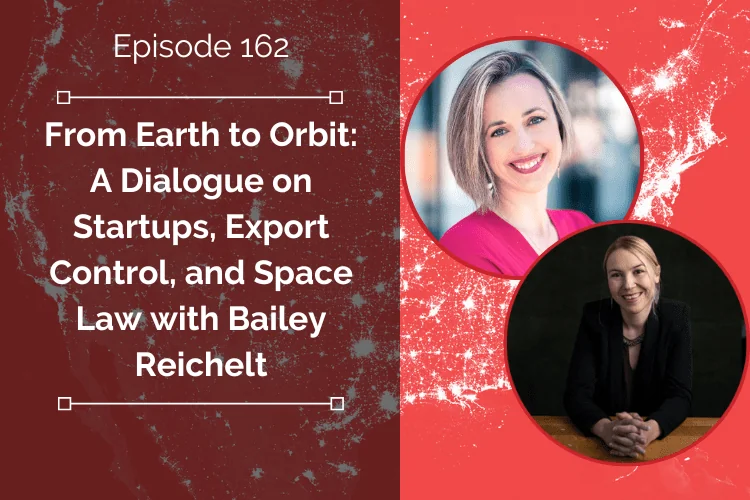The cosmic world of space technology is an exciting frontier. From navigating celestial bodies to exploring the depths of the cosmos, space technology has a profound impact on our understanding of the universe. However, behind the scenes, there’s a labyrinth of legalities and regulations that govern this field.
In a recent podcast episode, Bailey Reichelt, a renowned space lawyer and founding partner at Aegis Space Law, delves into the intricacies of these export control regulations.
Export Controls in Space
- Understanding export controls in the space tech industry is crucial due to the legal complexities surrounding controlled technologies. Ignorance of these laws can lead to severe penalties, including significant fines or imprisonment.
- Compliance with regulations like the International Traffic in Arms Regulations (ITAR) and the United States Munitions List (USML) is required, including obtaining the appropriate licensing and permissions. Hiring foreign individuals in the space tech industry can pose potential challenges due to these export controls.
- Expert consultation is advised to navigate the complexities of the law, especially concerning hiring, technology sharing, and understanding controlled technologies. Various resources, such as government websites and nonprofits, are available to assist in understanding and navigating export controls in space tech.
Understanding Controlled Technologies
- Controlled Technologies: It’s vital for startups, entrepreneurs, and international students in the space industry to understand the legal landscape surrounding controlled technologies. Comprehending export control regulations can help avoid penalties and legal issues.
- Export Control Regulations: These regulations pertain to specific technologies. It’s essential to know the guidelines for determining if a technology is export controlled and to stay updated on the ever-evolving roster of controlled technologies.
- US Export Controls and Discrimination: Understanding the complexities of export controls is crucial, especially regarding their impact on the hiring process in the space industry. It’s necessary to be aware of potential discrimination issues, challenges companies face, and the specific statuses that qualify as US persons.
- Commercial Space Technologies: The legal landscape surrounding controlled technologies and space tech is complex. Comprehending the International Traffic in Arms Regulations (ITAR) and the United States Munitions List (USML) is crucial to avoid potential consequences of non-compliance.
Impact of Export Controls on Hiring
- The intricate export control regulations play a crucial role in hiring processes within the space tech industry. Companies often opt to avoid the complexities associated with obtaining permissions and licenses by refraining from hiring foreign personnel, unintentionally promoting discrimination.
- The concept of ‘deemed exports’ adds another layer of complexity to these regulations. This term refers to the sharing of sensitive information with a non-US person within the country, a scenario that many startups with limited resources struggle to navigate while avoiding legal issues.
- The stringent regulations around sharing controlled technologies present numerous challenges for international students and workers aspiring to join the space tech industry. As many visa statuses do not classify individuals as US persons, these prospective employees often encounter significant obstacles in securing a position in this sector.
Ultimately, navigating the complex landscape of space tech regulations and export controls is crucial for all stakeholders in the space industry to ensure compliant and successful business operations.
If you want to learn more about Sophie Alcorn Podcast, check out https://www.alcorn.law/podcast/sap162




